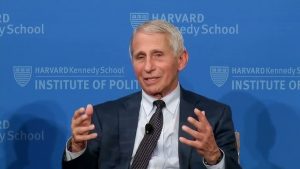The unprecedented commutation of nearly 1,500 sentences highlights President Biden's goals of family reunification and community strengthening while raising questions about consistency in presidential pardons.
Historic Clemency Grant: Biden Commutes 1,500 Sentences in One Day

Historic Clemency Grant: Biden Commutes 1,500 Sentences in One Day
A record-breaking number of pardons reflect Biden's vision for societal reintegration and support for nonviolent offenders.
In a historic move, President Joe Biden has announced the commutation of nearly 1,500 sentences, marking the largest single-day act of clemency granted by any American president. This announcement, released from the White House on Thursday, emphasized Biden's pledge to "help reunite families, strengthen communities, and reintegrate individuals back into society."
Many of those receiving clemency had been placed under home confinement during the COVID-19 pandemic, with 39 of the pardoned individuals serving sentences related to nonviolent crimes such as marijuana possession. This substantial clemency action comes shortly after Biden faced bipartisan criticism for pardoning his son, Hunter Biden, who had convictions for gun possession and income tax evasion—an act that contradicted the president’s prior stance against clemency for his son.
This expansive clemency initiative has generated various responses from different political camps. Proponents argue that this action represents a critical step towards criminal justice reform and acknowledges the devastating impact of stringent sentencing laws, especially on communities of color. They see it as a necessary move to right the wrongs perpetuated during the war on drugs, which disproportionately affected marginalized populations.
Conversely, critics from both sides of the political spectrum have raised concerns about the implications of such sweeping pardons. Some Republicans express apprehension that this move may undermine the rule of law, while moderate Democrats question the motivations and the potential for perceived favoritism following the controversial pardon of Hunter Biden.
As the Biden administration continues to navigate the complexities of executive clemency, this unprecedented action serves as a hallmark of Biden's presidency—shifting the conversation around criminal justice reform and the challenges of reintegration into society for previously incarcerated individuals.
Many of those receiving clemency had been placed under home confinement during the COVID-19 pandemic, with 39 of the pardoned individuals serving sentences related to nonviolent crimes such as marijuana possession. This substantial clemency action comes shortly after Biden faced bipartisan criticism for pardoning his son, Hunter Biden, who had convictions for gun possession and income tax evasion—an act that contradicted the president’s prior stance against clemency for his son.
This expansive clemency initiative has generated various responses from different political camps. Proponents argue that this action represents a critical step towards criminal justice reform and acknowledges the devastating impact of stringent sentencing laws, especially on communities of color. They see it as a necessary move to right the wrongs perpetuated during the war on drugs, which disproportionately affected marginalized populations.
Conversely, critics from both sides of the political spectrum have raised concerns about the implications of such sweeping pardons. Some Republicans express apprehension that this move may undermine the rule of law, while moderate Democrats question the motivations and the potential for perceived favoritism following the controversial pardon of Hunter Biden.
As the Biden administration continues to navigate the complexities of executive clemency, this unprecedented action serves as a hallmark of Biden's presidency—shifting the conversation around criminal justice reform and the challenges of reintegration into society for previously incarcerated individuals.



















